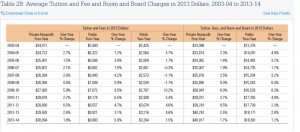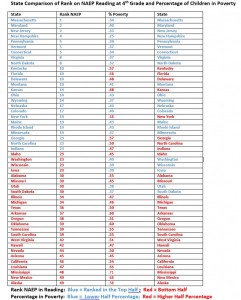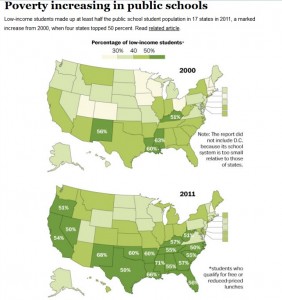Dear Commons Community,
We have heard so much over the past several years that tuition and other fees at our colleges and universities are a major problem that needs to be addressed and reformed. A report, by the College Board shows that the net cost of tuition, fees, room and board has not changed that much over the past decade. For example, the average student at a private, nonprofit college is about 57 percent of the sticker price, down from 68 percent in 2003-4. That works out to about $23,000 this year, a figure that, adjusted for inflation, has not varied much for 10 years. (Looking only at tuition and fees, the inflation-adjusted net price is actually lower than it was a decade ago.) As reported in the New York Times:
“The cost of college, in real terms, did rise significantly in the 1980s and ’90s, and the report is not meant to play down the fact that college is often expensive and a burden, said Sandy Baum, one of the authors of the report.
“It’s not hard to find instances of people genuinely struggling to pay the prices they’re being asked to pay,” said Ms. Baum, a senior fellow at the Urban Institute and a research professor at the George Washington University Graduate School of Human Development. “But I think the hand-wringing about the trend is greatly exaggerated.”
That hand-wringing tends to focus on the full, published prices that — without inflation adjustment — have jumped more than 50 percent in the past decade. In particular, news reports cite the higher-than-average sticker prices at the most prestigious colleges, though those universities tend to give the most financial aid and the deepest discounts, too. “
In looking at the report, I found the most telling table was the breakdown by sector and state in current dollars. See:http://trends.collegeboard.org/college-pricing/figures-tables/tuition-and-fees-sector-and-state-over-time
It basically shows disparities by states and the public and private sectors but that many states have held the line in tuition for in-state students attending public colleges and universities.
Those (i.e., the U.S. Department of Education and the Gates Foundation) who keep calling for reforming American higher education and the need to rein in tuition should examine this report carefully.
Tony





